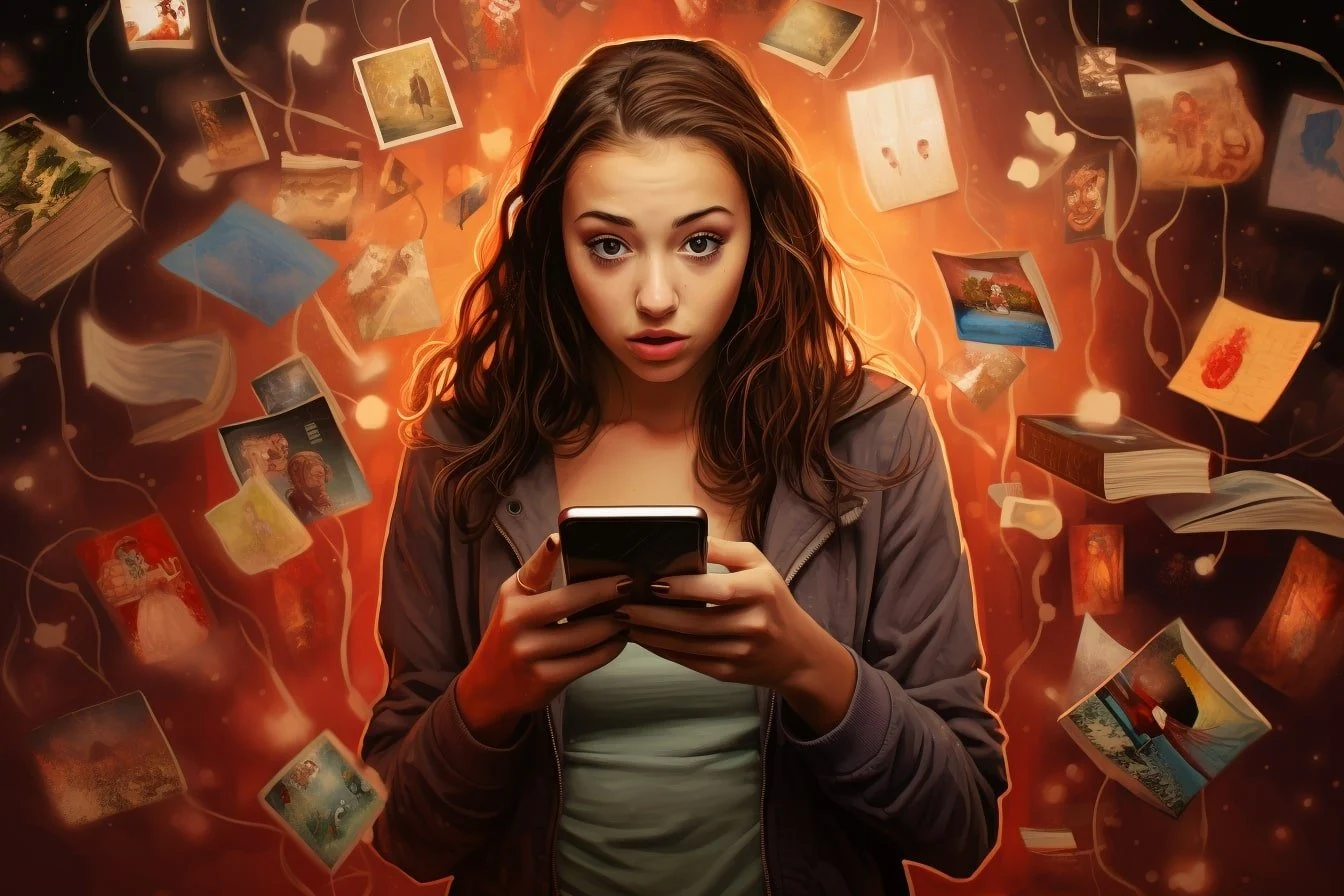
While it can have a great impact on mental health through its many positive sides, it is down to the users of social media to recognise its risks and learn to manage their screen time in a healthy, non-addictive manner.
While some studies have found that social media is linked to depression, others have found that it provides a welcome outlet for people.
It’s a great way to stay in touch with friends
Some of the participants associated positive qualities with social media, for instance it was seen as ‘a place to be’, a medium for self-expression, connecting with others and finding new information. Some also associated it with differences such as attention span, self-confidence or contentment. Viewing social media posts may trigger dopamine release and can create a psychological need for it – similar to gambling and substance disorders – and can lead to a sense of alienation, of being outsiders or not being important enough, which in turn might lead to depression. The cycle is complete: individuals can feel inadequate and alone. Social media, with its immediate and princessive nature, offers the perfect platform to bring stigma surrounding mental health into the public sphere. By humanising and destigmatising, stories and awareness campaigns can also normalise these conversations, potentially resulting in more empathy and support from a worldwide audience. It remains important, though, that users validate themselves in other arenas outside of social media.
It’s a great way to stay healthy
Certainly, communication spares no boundaries now that people can keep in touch anywhere in the world due to the rise of social media, but downsides accompanied by its helpfulness, unfortunately, adding concerns as well.The positive side has made it readily available for people to stay in touch with one another for any reason. It also guarantees up to date information with just one click. Unfortunately,Users are also susceptible to succumbing to attacks from these platforms, Moreover, emotions – mostly negative – can influence people under its influence. Hence, it makes me less optimistic about embracing kindness with others on the web.In conclusion, it is recommended that the children be forewarned about the pitfalls beforehand and taught to refrain from downloading suspicious files. Social comparison, goals to achieve idealised bodies and filter experiences can contribute to feelings of inadequacy and are risk factors for depression. Third, algorithms designed to maximise users’ time on the internet can lead to consumption of disproportionate amounts of screen time, negatively affect night-time sleep, and reduce face-to-face social interactions – all factors related to adverse mental health outcomes. To help avoid these downstream negative consequences, keep usage to a minimum and make use of social media less frequently. Instead, engage in healthier distractions such as exercising, volunteering or face-to-face visits from friends and family members as a way to replace the dopamine hits from social media with healthier and more prosocial activities such as exercising and volunteering – it takes practice but is necessary to stave off the long-term effects of poor mental health and wellbeing.
It’s a great way to stay motivated
Social media can be a great injection of motivation when you are feeling down, where just typing ‘UGLY/SUCK/LIFE SUCKS’ with hashtags into the search-box will already offer at least a dozen sharp profiles of real people eager to prove to you that somebody out there is doing better than you – and they are ready to tell you their story as to how they do it if you care to lend an ear. However, you should never forget why you look at social media. Are you doing it because of loneliness, boredom or the impulse to be connected with others? If so, then trying to find a healthier way to fulfil those needs (such as mindfulness-meditation or seeing friends face-to-face) might help reduce the amount of time you spend on social media, as well as improving experience; it also might prevent addiction to harmful habits that can result from using too much social media.
It’s a great way to stay in touch with family
There is arguably nothing like meeting friends over dinner but they are human and sometimes busy. Social media is a great way to stay in touch with family a long distance away. But those moods lurk unless you are conscious and can put your phone down and switch off, or look away at least from others’ identities. For, increasingly, without awareness, it is possible to believe that the world you view through a screen is somehow your world to judge, so that your life, as you compare it with theirs, becomes a field of unfulfillment. Lonely, depressed, the one facing the facts – you. Limiting consumption of social media improved mental health, too: in 2022, researchers found that limiting use of Facebook, Instagram, Twitter and TikTok led participants to report less anxiety and depression, and also more positive self-concept and better perceived ability to cope with stressful situations.
It’s a great way to stay in touch with your community
The internet could be providing a space in which those with mental-health issues seek solace, advice and direction when there are no people available to talk to – or they don’t want to. Our participants described how they found benefit accessing positive content online and on phones to increase their self-esteem and wellbeing. At the same time, participants described social media feed curation and blocking content that would trigger feelings of being bad, or lead to negative feelings. Although social media has played a vital role in spreading awareness about mental health issues , it’s important to understand that it ruins people’s moods. Solve this problem by using it consciously rather than letting it use you.








